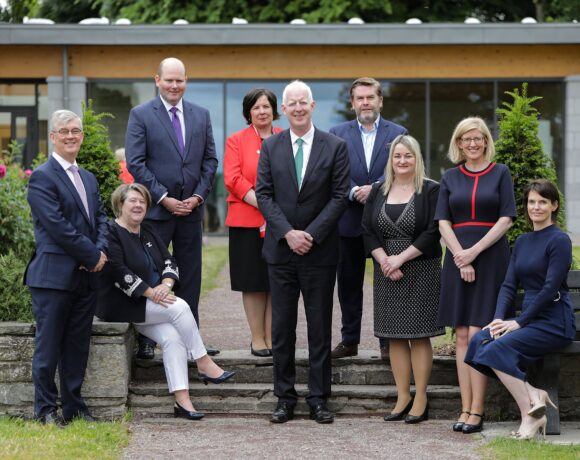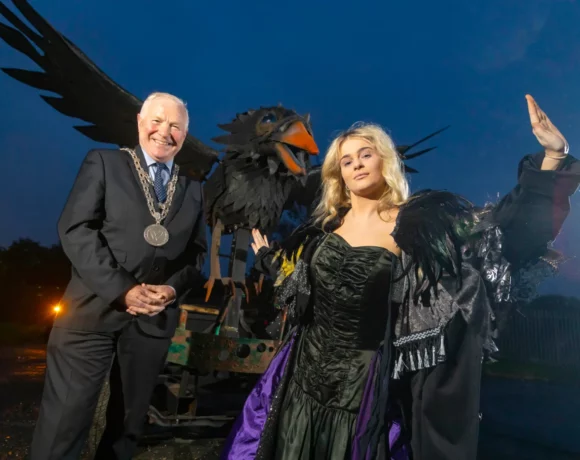A bright future lies ahead for Irish tourism and the time is ripe for a big focus on rural tourism. Another big government commitment will be required to make this a reality but amid the positivity, there are some serious challenges ahead too.
Liam Griffin is one of Ireland’s leading entrepreneurs and hoteliers. Now retired from the day-to-day running of the Griffin Group – a long established family business & one of Ireland’s leading Hotel Groups – he remains Chairman of the board.
Combine this with managing Wexford to All-Ireland Hurling triumph in 1996 and his contribution to the hurling world in general, and we are presented with one of Ireland’s leading business and sporting icons.
He has seen more than most and his reputation and successes speak for themselves. Liam’s unwavering desire to succeed is matched in equal measure by his passion for hurling & hospitality and tourism.
Given his many years of success and experience in the hospitality and tourism trade, Liam is expertly equipped to run the rule over the industry’s prospects, potential and current health.
A recently published Fáilte Ireland report ‘Tourism Facts 2016’ has shown last year to be a record one for tourism. Ireland clocked a record number of visitors last year, up 8.8pc to 8.742 million with 64pc of all tourists were first-time visitors and the total revenue from tourism was €8.31 billion in 2016.
Given tourism’s undoubted economic importance to the country, is the government doing enough to boost the tourism and hospitality industry?
“The obvious answer is there is never enough but that is such an obvious answer that it is a cliché”, says Liam before elaborating further, “to be fair the government, their decision in relation to the 9% VAT was a monumental decision for the hotel industry and it was made at the right time and at a time to save the industry.”
“At the time, as a result of bad government and bad decision making by government in relation to deregulation totally of the hotel industry and introduction of tax breaks which went way beyond their sell-by-date. We had created an absolute disruption in the market that was not sustainable, for established businesses who had put an awful lot of work into their premises of a long number of years. It was a good idea but it was flogged to death until it had flogged itself so far that it damaged it the entire industry.”
“When we hit the crash, dropping the rate on VAT was an enlightened way to approach
tourism as it helped to stimulate the industry”.
In the aftermath of the economic crash, Liam hails the efforts and ingenuity of Failte Ireland, especially with regard to their marketing, who “with their backs to wall, kicked in very strongly and out of that arose the ‘Wild Atlantic Way’. An Inspirational approach, truly inspirational”.
“I worked for Bord Failte for a number of years and the problem would be, as Pat Shortt would say, it would be a great little country if we could put a roof on it”. So with the Wild Atlantic Way, it was a genuinely fantastic tagline, which told the truth and had integrity. It didn’t suggest we are a great tourism destination but withhold the fact that you might be drowned wet every second day”, he adds.
Failte Ireland’s more recent endeavour, Ireland’s Ancient East, may require further tweaking, as for Liam, “it doesn’t sit as easy on the tongue. If there is one criticism of it, the idea is good but the strapline could be more like the Wild Atlantic Way that’s an attraction in itself.”
However, he believes criticism could be levelled at the fact Ireland’s focus for tourism is too city centric. This though, is a worldwide trend spurred by the advent of cheap flights. Tourism has moving in that direction for a while as cities are an easy sell, because city breaks offer a short trip for a good price and it has led to a situation where “our cities are at over capacity, the rates have gone high, not just Dublin but any city that is an attraction for tourism.”
Liam believes it is ripe time for more of a focus on rural tourism in Ireland, not only because cities are swamped, but “rural Ireland desperately needs tourism, especially with the depopulation. However, depopulation is actually an attractive proposition for a foreign tourist”, offering a unique experience like no other. This will in turn, have huge knock on effects and benefits for rural communities and businesses, and the country as a whole.
The regional approach taken by the various agencies and councils in the South East region should serve as an example to others and a shining a symbol of what can be achieved with such joined-up thinking by the local authorities. So far, this collaboration has brought about what Liam describes “a master plan, that when it hopefully comes to fruition, it would be a really ad-jinx to the ‘Wild Atlantic Way’.”
This Greenway / Blueway plan has been in the works for the past year and “would see people able to travel along a Blueway from Rosslare right through to the Greenways, and right up the centre of the country to Donegal on a plan through rural Ireland. A unique product that allows you to travel the length of a country without taking to a road. We believe it has tremendous potential with a great future.”
“This needs another big government commitment to make it happen. Now, it won’t happen overnight but it can happen and it would mean we would have a couple of genuinely unique products to match and to offset city tourism, and a reason to come to Ireland and it could work wonders for the country. There has never been a more promising time in Irish tourism, if it is handled right. We need strategic planning and thinking into how we can make this happen. There is a great goodwill and coming together and working together.”
While bristling with positivity and firmly of the opinion that we are in the midst of promising times for Irish tourism, Liam is keen stress that it must be handled right and we must be mindful of the past and be sure not to replicate previous mistakes.
Drawing his ire in this case are the errors of the Celtic Tiger era and its approach which led to unfettered, unregulated development of hotels. “There was no strategy except for ‘build them and they will come’,” he says.
This attitude and ethos would come back to haunt long-established businesses like Liam’s, especially when he and others had to compete with NAMA hotels, who had an unfair competitive advantage undercutting established businesses.
“It was absolutely scurrilous. It put businesses like ours in trouble with our own banks and we managed to renegotiate our way through it, which was a fair achievement. We’re lucky to be here and I am very conscious that many of my colleagues are gone.”
“That was visited upon us by our own state as part of a solution to a problem the government
created themselves with their over capacity and nonsense. I will never forgive them for what they did till the day I draw my last breathe. It was a scandalous thing to do, it was ill thought out and reckless.”
There are clear and present challenges for tourism generally and rural tourism in Ireland and for Liam, one of biggest is litter and dumping and it is an issue he feels very, very strong on.
“Litter and dumping has become a nightmare problem in rural Ireland. As we’re going forward as a tourism destination we have to make our citizens aware that it’s just not good enough. No one
likes talking about rubbish but it is a massive issue not being dealt with and it is a huge impediment to developing our country for tourism. Dumping is a big, big problem and it is widespread. It is a blight on the countryside and it is the single biggest inhibitor to the growth and development of rural Ireland”.
According to Liam, the root of this problem comes from a failure within the system, i.e. the non-compulsory need for everyone to pay for refuse collection. “You have a crazy situation
whereby you can opt in or opt out of paying for your bins, and in rural Ireland, those
who don’t pay, just dump it in a ditch.”
Liam is ardent that a solution must to be sought so as not to stifle the development and growth of tourism in rural Ireland – people must be made more accountable for their rubbish and
a greater focus should be placed on education and enforcement to deter dumping.
On the bigger picture, Brexit and its fallout will present numerous challenges for Ireland and the tourism and hospitality industry is no different. Liam’s gut feeling is that Brexit will have a negative impact, “I feel that it will be exponential. It will be slow start but it will accelerate quickly. It will start with a small decline and lead to a much greater decline quickly over time.”
He is however, keen to stress that currency markets will be the big dictator in this regard.
“The problem we face at the moment is that Sterling is under pressure against the Euro. Britain is our largest market and if we don’t have things happening in the country, I believe the British market will wither more quickly. If we could have the Rugby World Cup followed by another big international event the following year, that would be great. But in the absence of any major high profile activity, we have to have something major on to attract people in. We are at the vagary of
currency markets, if Sterling remained strong, I wouldn’t be overly worried about.”
While undoubtedly some major obstacles await, namely Brexit and the rural dumping epidemic, Liam’s outlook for the industry and the country is a positive one. His buoyant attitude is also reflected by the recently published Fáilte Ireland ‘Tourism Facts’ which shows last year to a record one for tourism.
That said, the current situation must be handled correctly. We must be mindful of the past and be sure to not replicate mistakes of old. Navigate our way through these challenges and pitfalls, and with the aid of another big government commitment, tourism – rural tourism in particular – looks to have a bright future ahead.













